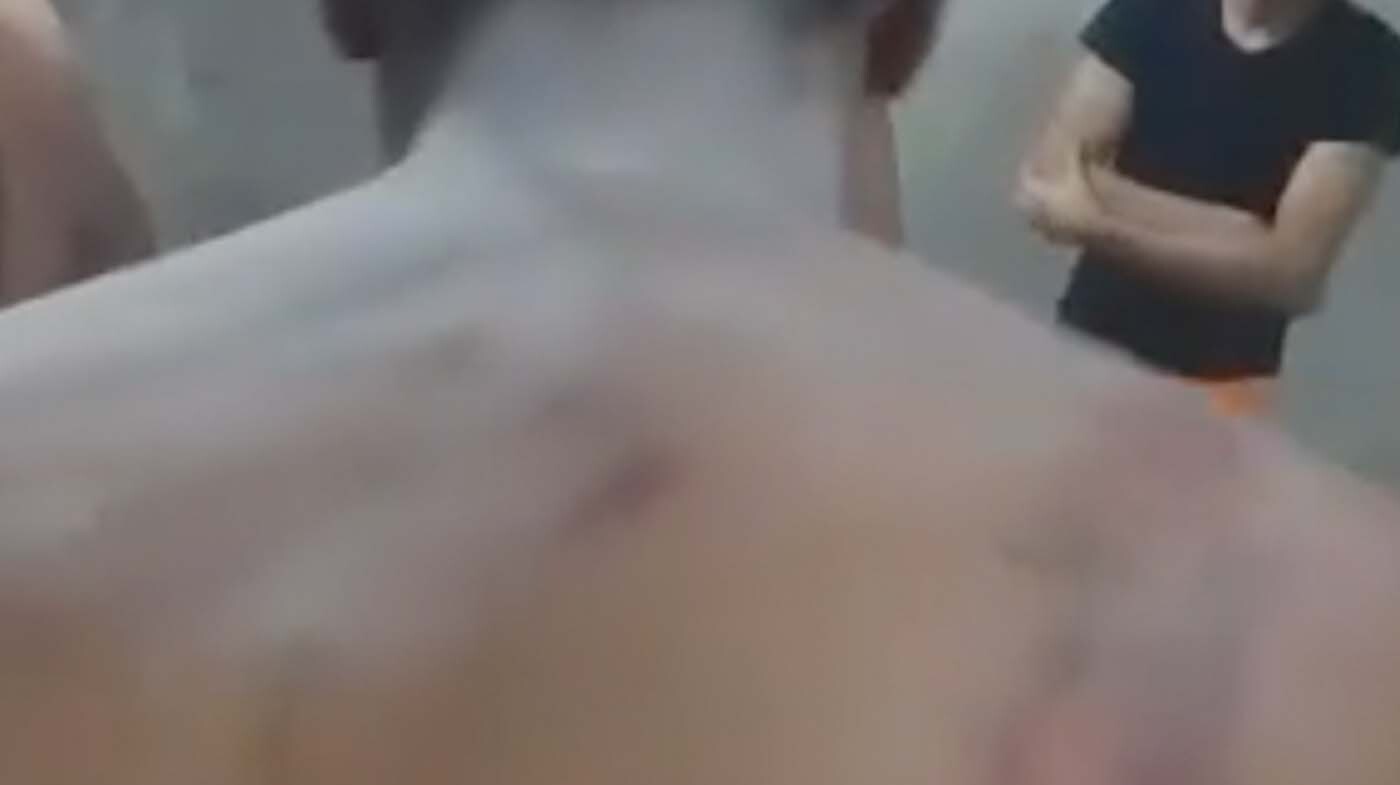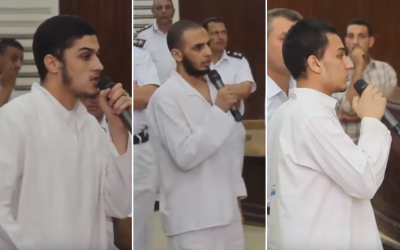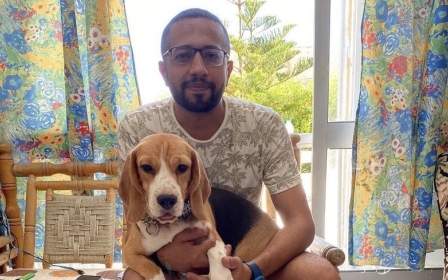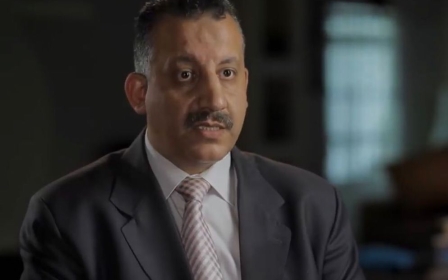Egypt: Detainees 'disappear' after leaked police station torture video
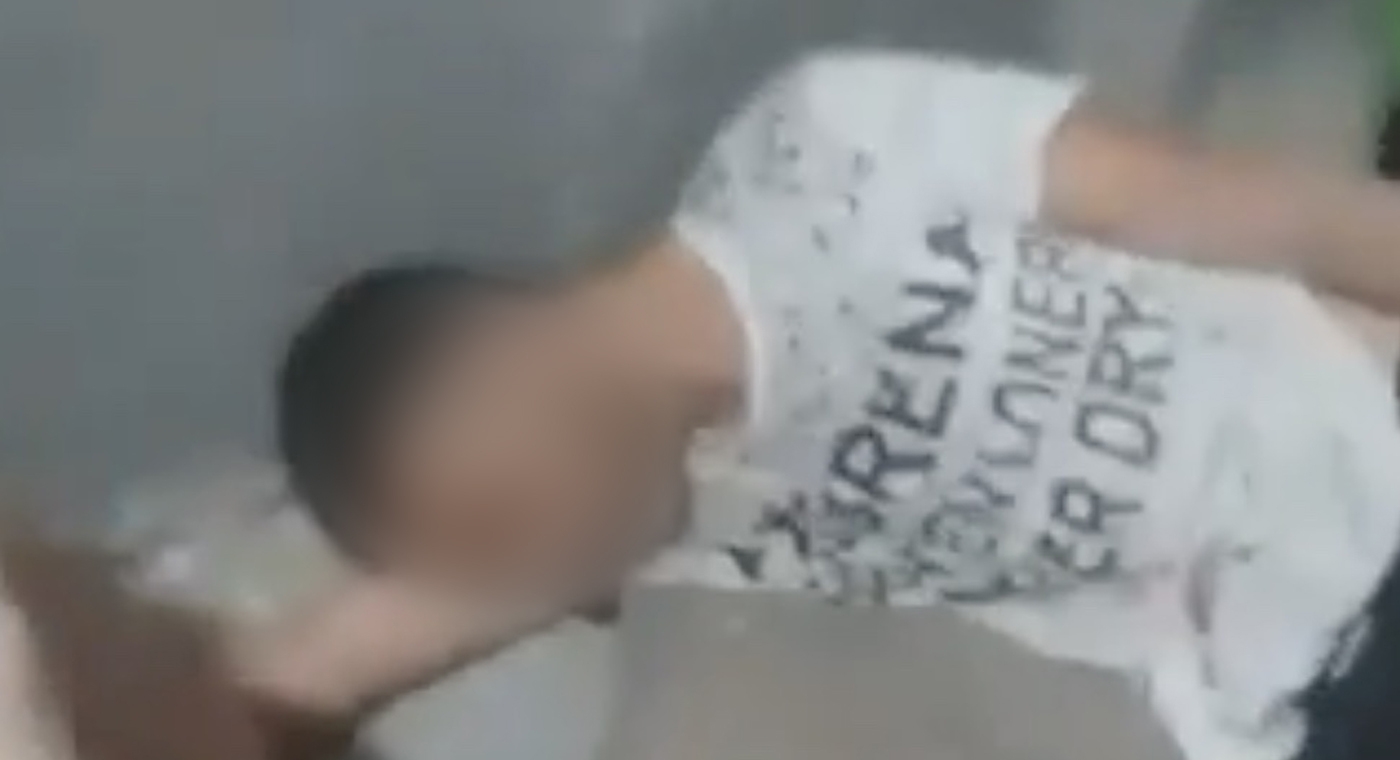
Egyptians detained in a Cairo police station that is embroiled in an abuse scandal have lost all contact with the outside world, raising fears that they have been forcibly disappeared.
Dozens of detainees are believed to have had contact with their relatives cut off. One source told Middle East Eye they believe the detainees have been removed from the police station and are being prepared to deny torture allegations that began the scandal.
Last month, videos seen by MEE appeared to show the ill-treatment and abuse of detainees by security forces in al-Salam Awel Police Station, which lies in the impoverished southeast Cairo district of al-Salam. MEE could not confirm the time when the videos were taken.
'I have not been able to reach him by phone, or even by bribing the guards. And I haven’t been able to visit him'
- Relative of a detainee
The videos were shared widely by Egyptian activists and Arabic media. In them, inmates queue to speak to the camera and show evidence of abuse.
MEE has edited a version of the footage, removing the most graphic scenes and protecting the identities of those seen being abused.
New MEE newsletter: Jerusalem Dispatch
Sign up to get the latest insights and analysis on Israel-Palestine, alongside Turkey Unpacked and other MEE newsletters
Eyewitnesses told MEE on Friday that security forces have imposed tight security measures in al-Salam neighbourhood in recent days, limiting civilian access to the vicinity of the police station.
A source whose relative was detained in the police station when the videos were published told MEE that he has lost contact with his family member for 10 days.
"I have not been able to reach him by phone or even by bribing the guards. And I haven't been able to visit him," the source told MEE.
Every Thursday, the police station allows relatives to bring food, clothes and medicine to the detainees, the source said, but they have not been able to visit for the past two Thursdays.
Another source, whose relative was also detained at the time of publishing the videos, said he had "disappeared" although he did not appear in the videos.
The source and other families of prisoners are worried they will be falsely charged with possession of narcotics or thuggery, they said.
"We tried to complain to the head of the Investigation Bureau, Major Ayman Fouad, but he would not even meet us," she told MEE.
Ismail, a resident of al-Salam neighbourhood, told MEE that the police station had turned into "a military zone" after the videos were published, and that high-ranking officials from the National Security Apparatus came to the police station after the reports.
He added that many people were refused access to their detained relatives and unable to provide them with food.
"We keep hearing rumours of a near possible reshuffle, and that the named officers might be transferred because they were sloppy," he said, referring to the three men accused by the detainees of meting out the abuse: Ahmed Badawi, Ali al-Kasab and Amro Ezzat.
MEE confirmed that all three officers are active police captains working in the station's investigation bureau. One of them denied the allegations, another refused to comment, and a third did not answer MEE's calls.
The interior ministry has yet to issue an official statement about the revelations or launch an investigation into the torture allegations.
However, officials from the ministry were quoted by several private newspapers denying "the authenticity of what was circulated in two video clips on the social media pages of a Muslim Brotherhood member who fled abroad, in which he claimed that some detainees in a police station were tortured".
The officials claimed the footage was fabricated "with the aim of spreading rumours and lies".
Pro-government social media outlets and newspapers have launched a campaign to defend the officers.
Kasab even received an honour on behalf of the head of investigations from Hekayt Watan, a pro-state political party whose members are mostly former military and police officers.
An al-Salam resident who lives near the police station said that the videos circulated widely in the neighbourhood "as if they were music videos" and "caused a lot of animosity with the government [police]".
He could not confirm that the inmates have disappeared but said that their families have lost connection with them.
MEE understands that the authorities have begun preparing videos of the detainees, forcing them to refute the claims of torture and abuse.
Egyptian security services routinely broadcast videos of inmates making confessions as evidence prior to trials. Rights groups have documented many cases of such confessions being based on torture and intimidation of detainees to confess to crimes they did not commit.
Impunity
Following reports about the leaked videos, pro-government social media groups circulated pictures claiming that the inmates were "ex-convicts" and "narcotics dealers".
It is common in Egypt for security services to accuse victims of torture of being drug users or dealers. In one of the most widely publicised cases, police said that Khaled Said, who was tortured to death 12 years ago, died as a result of swallowing a large packet of hashish.
Dozens of leaked videos of mistreatment of prisoners and inmates in Egyptian detention facilities have surfaced on the internet since 2008 and the use of phone cameras.
Rarely does this footage get investigated by the authorities. In many cases, pro-government politicians and media outlets describe the videos as fabricated material aimed at criticising the government.
In the first 11 months of 2021, Egypt's Nadeem Centre for the Rehabilitation of Torture Victims documented around 93 incidents of torture in police detention, along with 54 deaths in police custody.
The issue of torture in Egypt has been under the international spotlight since an Italian parliamentary panel accused the Egyptian security apparatus of the kidnapping, torture and murder of Italian student Giulio Regeni in Cairo in 2016. A post-mortem examination showed he had been tortured before his death.
Since President Abdel Fattah el-Sisi came to power in 2013, his government has been accused of overseeing the worst crackdown on human rights in the country's modern history. Thousands have been jailed, tortured and forcibly disappeared, while others have been forced to live in exile for fear of repression.
Sisi justifies his crackdown as part of his government's "fight against terrorism," but many rights groups have documented the government's systematic use of counterterrorism laws to prosecute his peaceful critics.
Middle East Eye delivers independent and unrivalled coverage and analysis of the Middle East, North Africa and beyond. To learn more about republishing this content and the associated fees, please fill out this form. More about MEE can be found here.



